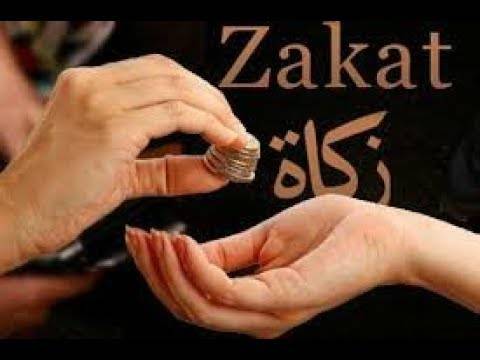Should govt leave Zakat payment to individuals?

Stay tuned with 24 News HD Android App

The Zakat and Ushr system that had been introduced during Gen Zia’s period as part of the Islamization package has failed to deliver the desired results mainly because of the negligence of the successive governments.
It was believed that this blessed system would banish beggary/poverty and improve Pakistan’s image abroad.
But it has been observed that beggary has bulged with the passage of time and swarms of charity-seekers are seen at all important crossings of the major roads in the country.
(These days beggars are not seen because of the lockdown caused by deadly coronavirus. However, with the easing of lockdown and the approaching Eidul Fitr after two weeks, they will be back).
Their presence in large numbers throughout the year is the proof of the failure of the Zakat and Ushr system.
The Supreme Court recently took up the delicate matter and examined all its aspects.
It sought opinion from Mufti Muhammad Taqi Usmani, an Islamic scholar and a former judge of the Shariat Appellate Bench of the Supreme Court, on the subject.
(Mufti Usmani is the blessed soul who recently saw Prophet Muhammad (PBUH) in a dream and was told about the solution of the coronavirus).
In his suggestions to the apex court the scholar proposed replacing of the entire Zakat system with a new one based on ground realities.
“If the Zakat system has to continue, it must be reviewed thoroughly and replaced with a fresh system based on realities on the ground, lest the Zakat, a sacred form of worship, should fall prey to corruption”, he said.
Mufti Usmani said the handling of Zakat at the government level required a very robust and well-organized system which currently was not in place.
If the Zakat system cannot be replaced with a fresh system, he said, then it would be better to forego the idea that the government manage distribution of Zakat.
“Let the people pay their Zakat with confidence to the poor directly and be satisfied that their Zakat has reached those who deserve it,” he said.
Mufti Usmani regretted that people had lost confidence in the system of Zakat and try to avoid paying Zakat to the government, for which purpose they either draw their money from bank before Ramazan or file a declaration that their ‘fiqh’ does not allow them to pay Zakat on certain items.
Some Ulema, Mufti Usmani said, were also of the opinion that deduction at source was not allowed in Shariah and the obligation of Zakat was not discharged when the amount is so deducted.
After the 18th Constitutional Amendment in 2010, the system of Zakat was taken over by the provinces and the Federal Zakat and Ushr Ordinance 1980 was somehow repealed.
Mufti Usmani said the collection of Ushr had been totally abolished by all the four provinces and though no legislation could be found, practically no Ushr was collected anymore.
The practical position, he said, was that the Zakat was collected at source through banks only and was deposited in the Zakat account of the federal government that transfers the money to the provincial governments on the basis of their population.
Mufti Usmani said during the days of the Holy Prophet (peace be upon him) and the four caliphs, different persons were employed to collect Ushr from agriculturists and Zakat from cattle owners according to a well-defined formula.
These people used to bring the Zakat and Ushr mostly in kind and pass on to Baitul Mal (the exchequer of the state). Once became a part of Baitul Mal, the collected Zakat was used by the state in the eight heads mentioned in the Holy Quran, he said, adding that the people who collected Zakat used to be given their remuneration out of the Zakat fund.
What Mufti Usmani has said depicts a grave situation.
No doubt the system has been dysfunctional for long otherwise beggary would not have been rampant as now.
It can be said without an iota of doubt that there are people in society who go for begging no matter whether they actually need money or not. They stretch hands or begging bowls because it has become their way of life – hobby.
Then there are also vested interests behind the growing menace of beggary. There are many who have bidden adieu to self-respect and have ‘quarantined’ conscience.
Mufti Usmani has rightly suggested that either the system should be thoroughly reviewed to make it compatible with the present-day requirements, or the government should leave the field to the individuals.
Probably it is time for the government to leave this field and show its performance in countless other fields where it has not been able to deliver so far.
